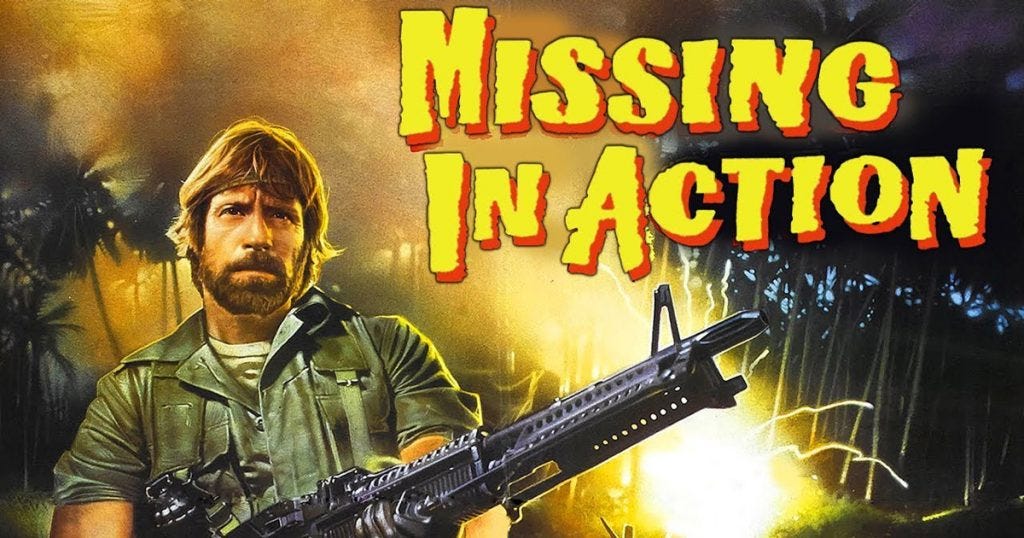
The Return of MIA Government.
Not the return of government that cannot get its core business done.
That is a defining characteristic about politics and government in Newfoundland and Labrador since 2003.
This is the return of me pointing it out in a column.
Let’s talk about three examples of laws that are missing in action. Two from the early period of this time of fundamental policy and administrative incompetence and one more recent one:
We live in a country that is supposed to be based on the rule of law.
The House of Assembly exists to pass laws.
The majority party in the House forms the Executive government and brings laws to the House for approval so they can do things for the people of Newfoundland and Labrador.
Yet there are an astonishing number of laws passed since 2003 that are not in force at all, sections of other laws that are not in force (one was even repealed without ever being in force), and others - like the Elections Act amendment (2021) and The Balanced Budget Act (2021 and 2022) - are announced but nothing ever shows up.
We are not talking a few weeks or months here until everything is ready.
We are talking years in which nothing happens.
The Sustainable Development Act was supposed to “ensure the province’s renewable and non-renewable resources are developed to maximize benefits for the province, while protecting the natural environment so that future generations have the ability to meet their own needs.” There was a lot of talk about it, although it only happened on one day - June 5 - in 2007.
There was supposed to be a new board - called a round table - to bring together the Great Minds of the province. “The round table will be represented by [sic] all sectors of the economy, including industry, environmental groups, academics, Aboriginal groups, wildlife organizations and individuals," someone wrote for Clyde Jackman to say. "The round table will provide advice, make recommendations and be an effective contributor to our government’s sustainable development agenda."
They would develop a Strategic Environmental Management Plan, work for which was already underway in 2007 - supposedly - complete with more than a half million dollars in tge budget to get going.
And 18 years later, there’s absolutely nothing. This despite a consultation in early 2007 that received 100 submissions.
Zilch.
Same thing with the Safer Communities and Neighbourhoods Act. Debated and passed over a couple of days in June 2007. Tom Osborne guided the bill through the House as the Pea Sea minister of justice.
The bill created an office, run by a director, where people could complain about activity in their neighborhood that would “negatively affect the health, safety or security of one or more persons in the community or neighbourhood” or “interfere with the peaceful enjoyment of one or more properties in the community or neighbourhood, whether the property is privately or publicly owned.” Tom explained that other provinces - such as Novas Scotia, New Brunswick, Manitoba, Saskatchewan - had put this type of law in place to deal with drug abuse in neighbourhoods and all the activity that went with it. There’s a similar idea at the federal level as well.
But in Newfoundland and Labrador, once Tom got the bill through the House, nothing happened.
No explanation why.
Gerry Byrne gave us the Fair Registration Practices Act as part of government’s panicked reaction to shortages of health care workers and the embarrassing delays in licensing at the provincial medical regulator, including the super embarrassing rejection of a Memorial University medical graduate on the flimsiest of bureaucratic excuses. The government rammed through changes to the Medical Act that - in effect - stripped physicians of self-regulation. And Gerry’s Law.
The thing about Gerry’s Law though is that it doesn’t actually do anything. Sure Gerry said in the House that this “is a very timely and important bill, which I'm sure the House will be seized with, but will be very, very supportive of, especially as I outline the various components and the true intent of the bill.”
But all the law does is tell organizations that issue licences that they must do what they do anyway: tell people the rules, let them apply, and so on. All the organizations that should be covered by the law belong to the government or report to it. Government can set a standard and can sort out anyone that doesn’t fall in line. Easy as that. No new law necessary.
That takes exactly the same work as enforcing Gerry’s Law would if it were in force, which makes this in some ways the poster child for brain farts and pointless bureaucracy. To make it worse, Gerry’s Law as written also doesn’t apply to all the organizations issuing licences in the province and - if you look at the list of organizations covered by the Act - includes one government agency while ignoring a bunch of others.
While you could make a great case for either of the other Missing-in-Action Laws the guv’mint still haven’t put it in force, the FRPA is so bland and meaningless you could kill it off and no one would notice. After all, we haven’t had it for the two and a half years since the House of Assembly passed it and no one is clamouring for it.

These three MIA Laws all responded to urgent issues in the province. Gerry’s Law was obviously a brain fart and we are promised the brain fart will continue, with amendments coming later, but that’s another story.
Gerry’s Law made no sense at the time and still doesn’t. It would make no difference - and obviously hasn’t - but the other two are actually good ideas and make a lot of sense almost 20 years after they went through the House and then vanished. SCAN - Safer Communities and Nieghbourhoods - would be a potential help to folks all over the province dealing with the addictions and mental health problems government incoherence has driven into their front doors and backyards whether they are living in Goose Bay or the east end downtown of Sin Jawns.
MIA Laws reflect a fundamental problem in government these days:
Up in the wheelhouse, there’s a lack of political direction.
No one has any idea what to do, where to go, or how to get somewhere if they did. The problem is more than an obsession with just getting re-elected, it’s the lack of anyone inside whatever political party is running the place at any given moment really having a clue about where to take the province and the ability or will to get there. Andrew Furey’s whistle stop as Premier brought this tendency to chase Brain Farts into plain view but it’s really just the evolution of things that started under Danny Williams.
Down in the bowels of the ship of government, everyone is doing their own thing.
There’s no one in the public service running the whole show on the delivery end. That’s both caused by and made worse by the way the politicians up on the bridge keep changing the top end of the public service every time they change who the skipper is. Caused by, in that the politicians pick a new head of the public service every time they change Premier and made worse by a similar practice all the way down the line. The intense churn in the senior bureaucracy started under Danny, carried on through Kathy Dunderdale, and became the norm under Dwight Ball and then Andy. Furey’s added twist was bringing people into the public service as brain farters in their own right to implement more brain farts: Pat Parfrey and the Health Accord plus some of his followers like Stephen Tomblin, as well as Rob Greenwood - the Chief Economic Recovery Officer - and so on.
They are kin to the sugar tax or dead bodies at the hospital. The sugar tax was never a good idea and despite all the hype the Liberals abandoned it as fast as they thought it up. But then in getting rid of it the Fureyous Hoganites even Dwighted that up by inventing an artificial timeline to stop collecting the tax, likely because they need the cash in the meantime since oil prices are chronically below their overly-optimistic guesses in the budget.
The dead bodies meantime took six months to find a solution. Then longer to get anything done. Bureaucrats avoided the easy solution - make more money available to cover funerals for indigent or abandoned corpses- then shifted responsibility from one bureaucracy to the massive NALCOR of health care, and Dwighted up an needlessly complicated process to give unidentified or abandoned corpses a respectful burial. It will cost more in the end than just hiked rates, waste time as well, and increase the size of the public service in a government that is already living $3.0 billion a year beyond our collective means, thanks to bureaucratic bloat and the inefficiency that produces, which includes laws that get passed but never put into force.




